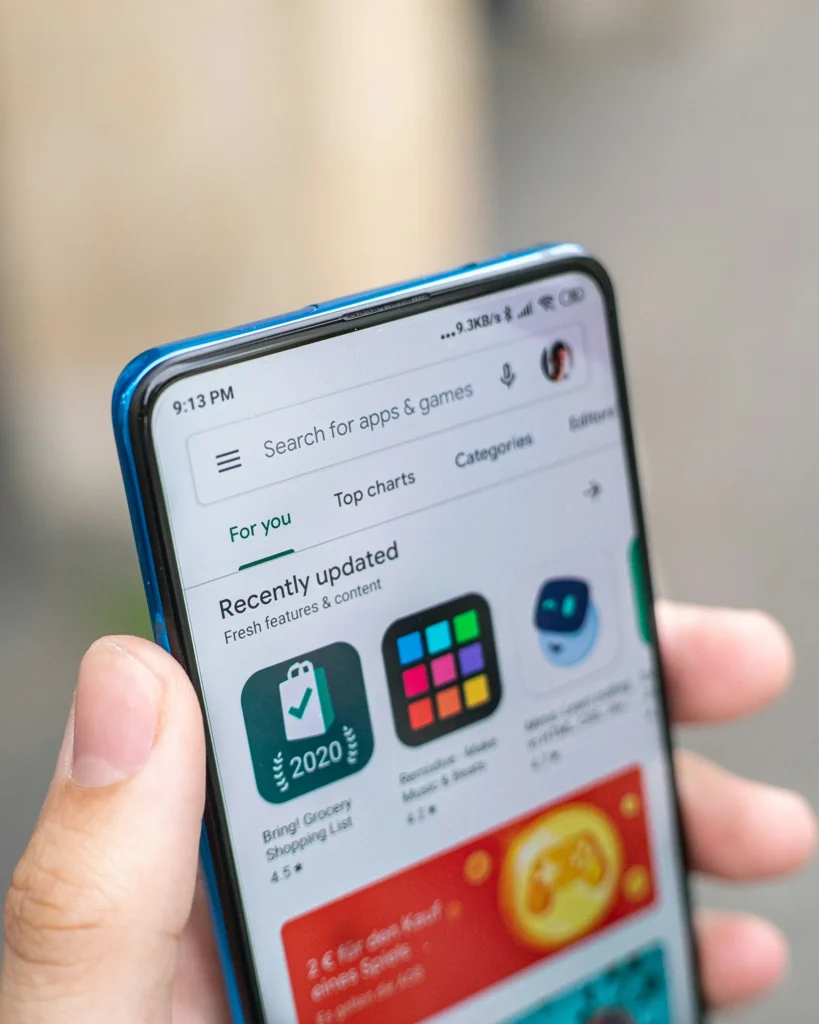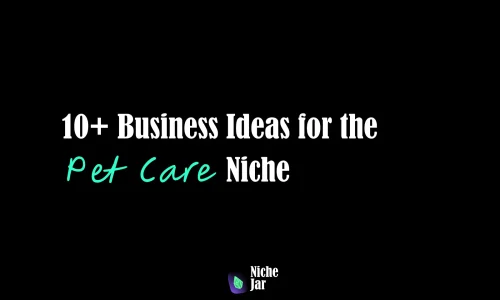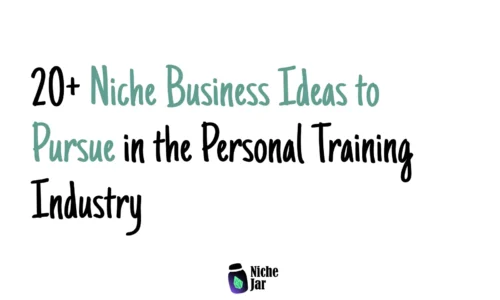- Senia
- 0 Comments
- 843 Views
Have you ever wondered how people make steady income by promoting products they don’t even own? The truth is, there are countless digital business ideas for the affiliate marketing niche that everyday people can explore. With the right approach, affiliate marketing can turn small efforts into meaningful results—but it takes patience and focus to find the right niche.
Affiliate marketing has become one of the most approachable ways for everyday people to start an online business. From what I’ve seen, the beauty of affiliate marketing lies in its simplicity: you don’t need to create your own product or handle shipping, yet you can still earn by connecting people with what they’re already searching for.
The opportunities are wide. Someone passionate about fitness might create a blog reviewing workout equipment. Another person might share cooking tutorials and link to kitchen gadgets. Others lean into software, online courses, or even travel deals. What makes this niche appealing is how flexible it is—you can start small, test ideas, and grow steadily.
But it’s important to be honest here: affiliate marketing isn’t an overnight success story. It takes time to choose a profitable niche, build trust with an audience, and learn how to share recommendations without sounding pushy. I believe this guide could help because it brings together 20+ digital business ideas for affiliate marketing, breaking them into practical steps with real-world challenges and solutions.
Each idea includes why it works, how to start, challenges you might face, estimated startup costs, and simple monetization paths. Think of it as a menu—you can pick one idea that resonates, rather than trying to do them all.
With that said, let’s dive into the main content.

1. Blogging with Affiliate Marketing
Why it works: Blogs remain one of the most powerful platforms for affiliate marketing because they rank on Google and attract buyers searching for solutions.
Steps to start:
- Choose a niche (fitness, cooking, tech, etc.).
- Set up a WordPress or Squarespace blog.
- Write helpful content like “best running shoes for beginners.”
Challenges: SEO takes time to build.
Solutions: Publish consistently, learn keyword research, and be patient.
Startup cost: $100–$300 (hosting + domain).
Monetization: Affiliate links, ads.
Example: A hobby blogger reviewing home workout equipment grew traffic steadily to 50k visits/month.

2. Niche Review Websites
Why it works: People often search for “best X” before buying. Dedicated review sites rank well for these searches.
Steps to start:
- Pick a product category (headphones, gardening tools, etc.).
- Write comparison posts and detailed reviews.
- Include affiliate links naturally.
Challenges: High competition.
Solutions: Focus on long-tail niches (e.g., “best gardening gloves for arthritis”).
Startup cost: $200–$500.
Monetization: Affiliate links, display ads.
Example: A small review site for home office chairs earned $1,500/month after 18 months.
3. YouTube Product Review Channel
Why it works: Video builds trust faster than text. Viewers love “unboxing” and demonstration videos.
Steps to start:
- Pick a product niche.
- Record unboxing, tutorials, or comparisons.
- Add affiliate links in video descriptions.
Challenges: Requires consistent content creation.
Solutions: Batch film content and keep editing simple.
Startup cost: $300–$800 (camera + mic).
Monetization: YouTube ads + affiliate links.
Example: A tech reviewer with 10k subscribers made steady side income by linking to Amazon products.

4. Podcasting with Sponsored Links
Why it works: Podcasts build loyal audiences that trust your recommendations.
Steps to start:
- Choose a focused niche (parenting tips, finance, etc.).
- Record weekly episodes.
- Share affiliate links in show notes.
Challenges: Slower to monetize.
Solutions: Grow listener base by guest appearances and cross-promotion.
Startup cost: $200–$500 (microphone + hosting).
Monetization: Affiliate links, sponsorships.
Example: A parenting podcast monetized by linking to baby gear mentioned in episodes.
5. Email Newsletter for a Specific Niche
Why it works: Email converts better than social media because readers have opted in.
Steps to start:
- Build a simple landing page.
- Collect emails with a free guide.
- Send regular tips with product links.
Challenges: Building your first 1,000 subscribers.
Solutions: Offer lead magnets (e.g., “Free keto recipes”).
Startup cost: $50–$200/month (email software).
Monetization: Affiliate links, sponsored emails.
Example: A weekly book recommendation newsletter gained 5,000 subscribers in a year.
6. Social Media Micro-Niche Pages
Why it works: Instagram or Facebook pages in very narrow niches (e.g., “succulent care tips”) attract loyal audiences.
Steps to start:
- Post daily tips or photos.
- Link products in bio or stories.
- Use hashtags to grow reach.
Challenges: Platform algorithm changes.
Solutions: Diversify by driving followers to an email list.
Startup cost: $0–$100.
Monetization: Affiliate links, sponsored posts.

7. TikTok Affiliate Marketing
Why it works: TikTok’s algorithm makes it easier to go viral with product showcases.
Steps to start:
- Create short, engaging product demo videos.
- Add affiliate link in bio or TikTok Shop.
- Focus on trending sounds and hashtags.
Challenges: Fast-paced trends can fade.
Solutions: Post frequently and follow trends quickly.
Startup cost: $0–$300.
Monetization: Affiliate links, TikTok creator fund.
Example: A TikTok page showcasing kitchen gadgets gained 100k followers in six months.
8. Pinterest Affiliate Boards
Why it works: Pinterest is a visual search engine where people actively look for products and inspiration. Pins have a long shelf life compared to other social platforms.
Steps to start:
- Create boards around specific niches (e.g., “Minimalist Home Office Ideas”).
- Design pins with Canva that link to affiliate products or blog posts.
- Optimize with keywords in titles and descriptions.
Challenges: Takes time to build traffic.
Solutions: Use Tailwind or schedulers to post consistently.
Startup cost: $0–$100.
Monetization: Direct affiliate links, traffic to your blog.
Example: A Pinterest board on “Keto Meal Ideas” grew to 50k monthly views, driving steady affiliate clicks.
9. Online Course Recommendations
Why it works: Many online learners search for the “best courses” in a skill area, making this a profitable affiliate path.
Steps to start:
- Pick a skill niche (e.g., coding, photography).
- Write or record reviews of online courses (Udemy, Coursera, Skillshare).
- Add affiliate links.
Challenges: Needs credibility to gain trust.
Solutions: Share your learning journey, or interview learners.
Startup cost: $100–$300.
Monetization: Course affiliate programs.
Example: A blogger sharing reviews of personal finance courses built $1,200/month income within 2 years.

10. Affiliate Marketing through Webinars
Why it works: Webinars let you build authority while promoting helpful products.
Steps to start:
- Host free value-driven webinars (e.g., “How to Start a Blog”).
- Integrate affiliate products as solutions (e.g., hosting, tools).
- Record and reuse sessions.
Challenges: Requires good presentation skills.
Solutions: Use slides and practice delivery.
Startup cost: $50–$200 (Zoom, webinar tools).
Monetization: Affiliate links during and after sessions.
Example: A small business coach used webinars to recommend website platforms and earned recurring commissions.
11. Software and SaaS Review Sites
Why it works: Software companies often offer high recurring commissions.
Steps to start:
- Focus on one type of software (CRM, design tools).
- Create detailed comparisons and tutorials.
- Optimize for SEO keywords like “best CRM for freelancers.”
Challenges: High competition.
Solutions: Pick micro-niches (e.g., “tools for Etsy sellers”).
Startup cost: $200–$500.
Monetization: SaaS affiliate programs (20–40% recurring).
Example: A niche blog reviewing time-tracking tools built $3k/month after steady growth.
12. Coupon and Deal Websites
Why it works: People love saving money, and affiliate programs often provide special deals.
Steps to start:
- Build a simple site highlighting coupons in a niche (e.g., “eco-friendly product deals”).
- Update frequently with active codes.
- Promote through SEO and email lists.
Challenges: Needs constant updates.
Solutions: Use automated tools or focus on evergreen deals.
Startup cost: $200–$600.
Monetization: Affiliate links through coupon codes.
Example: A local coupon blog attracted 10k visitors monthly by sharing holiday deals.
13. Affiliate Comparison Tools
Why it works: Tools like price or feature comparison sites help buyers decide quickly.
Steps to start:
- Build a simple comparison site (e.g., “best laptops under $500”).
- Use affiliate APIs to fetch product data.
- Display clear pros and cons.
Challenges: Tech setup can be complex.
Solutions: Use WordPress plugins or hire a developer.
Startup cost: $300–$1,000.
Monetization: Affiliate links in each comparison.
Example: A student created a comparison site for budget headphones and built steady ad + affiliate income.

14. Niche Affiliate Membership Sites
Why it works: Memberships add recurring revenue while mixing affiliate content.
Steps to start:
- Build a private community (Discord, Patreon, or WordPress).
- Share exclusive guides and affiliate recommendations.
- Charge monthly fees.
Challenges: Requires constant content.
Solutions: Batch-create resources and host Q&A sessions.
Startup cost: $200–$600.
Monetization: Membership fees + affiliate links.
Example: A gardening membership club included affiliate tool suggestions and reached 300 members in a year.
15. E-book or Digital Guide with Affiliate Links
Why it works: E-books offer evergreen income with built-in recommendations.
Steps to start:
- Write a guide on a specific niche (e.g., “Beginner’s Guide to Budget Travel”).
- Add affiliate recommendations inside.
- Sell or give away to build leads.
Challenges: Time to write.
Solutions: Repurpose blog posts or podcasts.
Startup cost: $50–$200.
Monetization: Affiliate links + book sales.
Example: A budget travel e-book sold 1,000 copies and included links to travel gear affiliates.
16. Mobile App with Affiliate Integrations
Why it works: Apps can integrate affiliate products directly for seamless monetization.
Steps to start:
- Build a simple app (recipes, fitness, budgeting).
- Add affiliate product suggestions inside.
- Monetize through links and ads.
Challenges: Higher development cost.
Solutions: Start with no-code app builders.
Startup cost: $500–$2,000.
Monetization: Affiliate links, ads, in-app purchases.
Example: A recipe app linked to kitchen gadgets on Amazon, earning commissions passively.

17. Influencer Collaboration Affiliate Model
Why it works: Partnering with influencers can bring traffic if you don’t want to be the face yourself.
Steps to start:
- Reach out to micro-influencers in your niche.
- Offer to manage affiliate promotions for them.
- Split commissions or handle technical setup.
Challenges: Requires networking.
Solutions: Start with small influencers who are approachable.
Startup cost: $100–$500.
Monetization: Shared affiliate revenue.
Example: A marketer partnered with 3 micro fitness influencers and built steady monthly income.
18. Local Affiliate Marketing Blogs
Why it works: Local niches are less competitive than global ones.
Steps to start:
- Focus on a city/region (e.g., “Best coffee machines for Paris apartments”).
- Partner with local shops or global affiliates.
- Create guides and reviews tailored to locals.
Challenges: Smaller audience size.
Solutions: Broaden over time while staying locally trusted.
Startup cost: $200–$500.
Monetization: Affiliate links, local sponsorships.
Example: A “Best Austin Parenting Products” blog built steady traffic through Facebook groups.
19. Affiliate Content Repurposing Agency
Why it works: Many creators struggle to repurpose affiliate content for multiple platforms.
Steps to start:
- Offer services turning blog posts into videos, pins, or newsletters.
- Get paid while also embedding affiliate links.
Challenges: Client acquisition.
Solutions: Start with freelancers on Fiverr/Upwork.
Startup cost: $100–$300.
Monetization: Service fees + affiliate bonuses.
Example: A freelancer repurposed content for 5 clients and earned extra via affiliate referrals.
20. Affiliate-Focused Virtual Summits
Why it works: Summits bring together experts, and affiliate products fit naturally into the content.
Steps to start:
- Host a niche summit online (e.g., “Home Fitness Tools Summit”).
- Invite speakers, record sessions.
- Promote affiliate tools and bundles.
Challenges: Event organization.
Solutions: Start with small, recorded sessions.
Startup cost: $200–$1,000.
Monetization: Ticket sales, affiliate commissions.
Example: A “Freelance Tools Summit” drew 2,000 attendees and earned through affiliate software promotions.

21. Case Study or Tutorial Websites
Why it works: Tutorials attract motivated buyers who want solutions.
Steps to start:
Create case studies with screenshots.
Challenges: Takes time to document.
Solutions: Focus on one detailed tutorial monthly.
Startup cost: $100–$400.
Monetization: Affiliate links, course upsells.
Example: A step-by-step blog on building Shopify stores earned consistent commissions.
Affiliate marketing is not just one business—it’s a toolbox of possibilities. From simple blogging to advanced SaaS review sites, each idea has its own potential. The key is to pick one approach, start small, and build over time.
I believe this matters because affiliate marketing allows ordinary people to start with low costs and learn as they go. There will be challenges—SEO delays, platform changes, and audience growth—but each challenge is also a chance to adapt.
If you’re ready, choose one of the ideas that excites you most and take the first step today. Remember, every successful affiliate started with just one link and one piece of content. And if you’d like more guidance, explore other business niches here on Nichejar.com.
TLDR
In short: here are some of the best affiliate marketing business ideas worth exploring:
- Blogging with affiliate links – SEO-driven, long-term growth.
- YouTube product reviews – high trust, visual impact.
- Email newsletters – direct communication with buyers.
- Social/TikTok pages – fast growth, trend-focused.
- Review or comparison sites – reliable, solution-driven.
- Online courses and webinars – educational + affiliate.
- Memberships and digital guides – recurring or bundled value.






